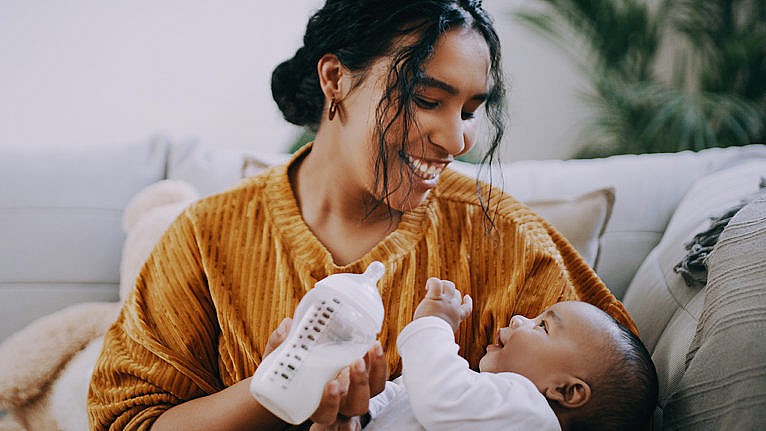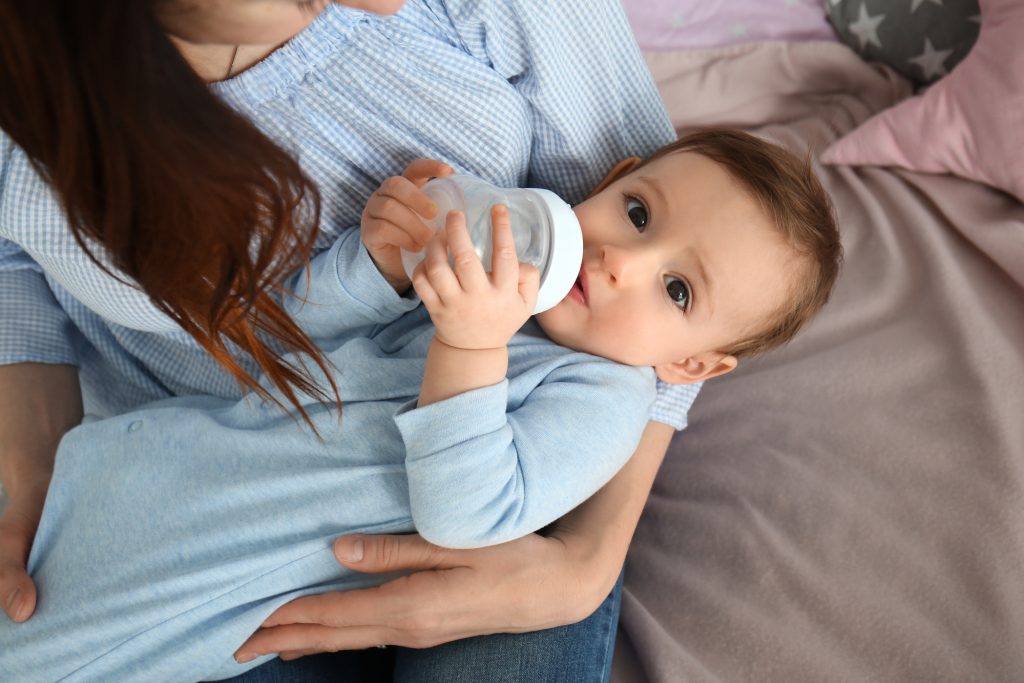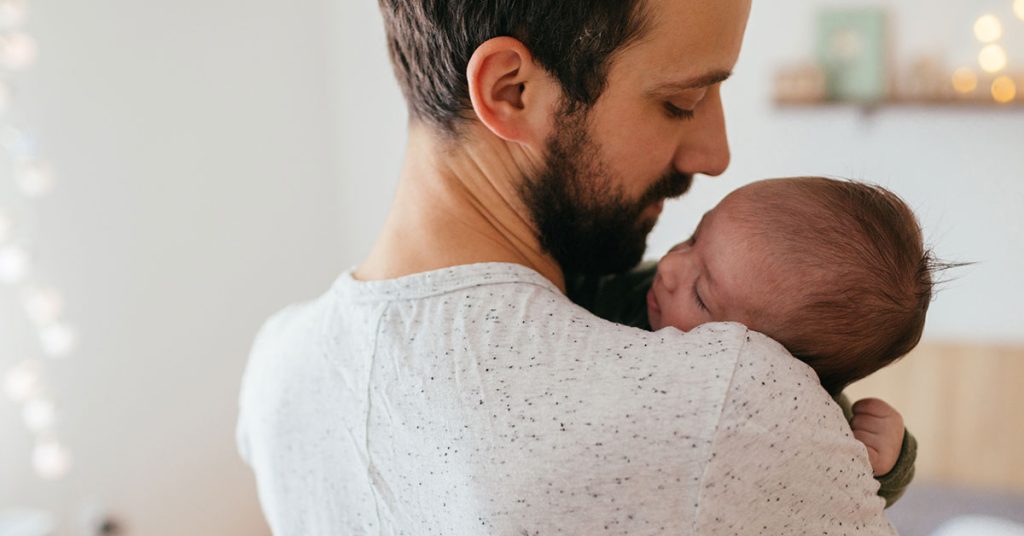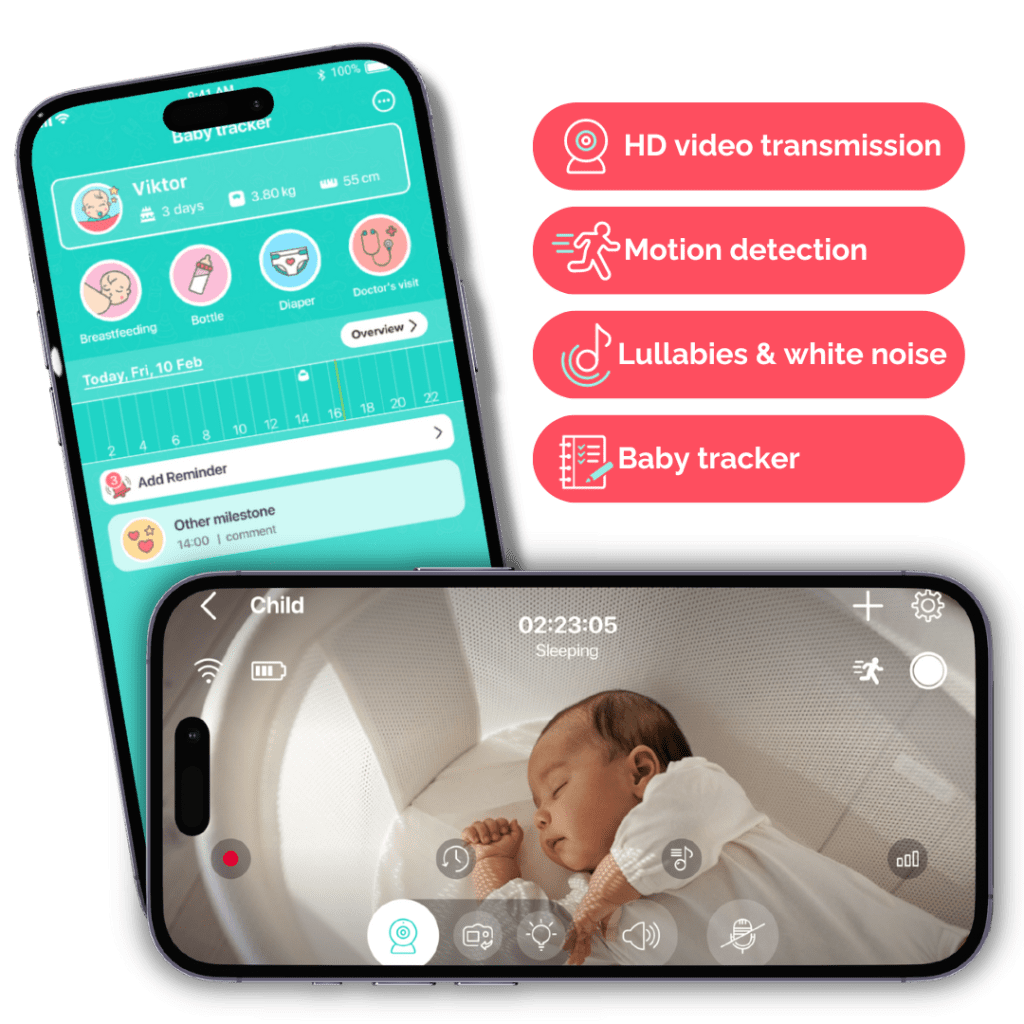
Baby Hiccups
- Created:
22. 4. 2021 - Updated:
10. 1. 2024
Baby hiccups are caused by a contraction of the diaphragm and the quick closing of the vocal cords. The rapid closing of the vocal cords is what creates the sound of hiccups. Since hiccups tend to bother adults, you may assume they bother babies as well. However, babies are typically not affected by them.
I prepared for you answers on the most frequent ask questions about baby hiccips. Hope it’ll help you!
Why do breastfed babies get hiccups?
Hiccups may be brought on by air trapped in little stomachs during a feeding. They may also simply be yet another in baby’s repertoire of reflexes. Later on, giggles may bring on the hiccups.
Are hiccups bad for newborns?
Hiccups do not normally harm a baby. While adults may find hiccups uncomfortable, they tend to cause less distress in babies. It is usually fine to leave a baby to stop hiccupping. If they do not stop, it is a good idea to speak to a doctor.
Are hiccups a sign of overfeeding?
When a hungry baby takes in too much milk too fast, that can cause the stomach to distend, which can cause hiccups. Instead of one big feeding, feed baby half as much, but twice as often. That way your baby can digest her milk more slowly, avoid a too-full tummy and alleviate gas pressure that can trigger hiccups.
Do hiccups mean a baby is full?
Very common in babies, hiccups are developmental. More importantly, they’re a sign of satiety. If your baby hiccups during his quiet alert time, it’s a sure sign he’s had enough. If your baby hiccups while still at the breast he’ll most likely stop feeding, since the hiccups can be uncomfortable at that point.
Can you lie a baby down with hiccups?
Sometimes feeding your baby will help stop the hiccups, but if not, don’t worry. Fortunately, babies do not seem to be bothered by hiccups and they often can eat and sleep even while hiccuping.

How do I stop my baby’s hiccups?
1. Burp your baby
Taking a break from feeding to burp your baby may help get rid of the hiccups since burping can get rid of excess gas that may be causing the hiccups.
Burping will also help because it places your baby in an upright position. Burping your baby not only after feeding but during the feeding as well.
2. Give them a pacifier
Infant hiccups don’t always start from feeding. When your baby starts to hiccup on their own, try allowing them to suck on a pacifier, as this will help relax the diaphragm and may help stop the bout of hiccups.
3. Consider a trial of gripe water
If your baby seems to be in discomfort because of their hiccups, you could consider trying gripe water. Gripe water is a combination of herbs and water that is believed by some to help with colic and other intestinal discomforts, though no evidence exists to support it.
The types of herbs can vary and may include ginger, fennel, chamomile, and cinnamon. Gripe water has not been clinically shown to help with hiccups in babies. It is also considered a supplement, and so gripe water is not regulated by the Food and Drug Administration.
Before you give your baby anything new, it’s always recommended that you discuss it with your baby’s doctor.
4. Just let the hiccups run their course
Babies under one year will hiccup fairly often, so letting them be is probably your best bet. More often than not, your baby’s hiccups will stop on their own.
If they aren’t bothering your baby, then you can just let them run their course.
If you don’t interfere and your baby’s hiccups don’t stop on their own, let their doctor know. While rare, it’s possible for hiccups to be a sign of a more serious medical issue.
All this four tips and more you find here on Health line.
How long hiccups last in newborn?
Babies can have hiccups multiple times a day, lasting for 10 minutes or longer. As a general rule, if baby acts happy and doesn’t seem uncomfortable, baby hiccups aren’t a cause for concern.
IMPORTANT: If a baby’s hiccups seem to interfere with their breathing in any way or your baby is turning blue, call 911 and seek medical attention right away.
Do hiccups mean a baby has to burp?
Most babies hiccup from time to time. This usually will bother you more than your infant, but if hiccups occur during a feeding, they may distress the baby. So change baby’s position and try to get the baby to burp or relax.
Are hiccups a sign of colic?
A baby is likely to get hiccups if they have swallowed too much air. This can be during feeding or even when they have been crying. Since one of the big causes of colic is due to air intake hiccups are often associated with colic.
Can newborns drink water?
It’s best not to give your baby water before 6 months. At this newborn stage, breast milk or formula meets every nutritional need for health and development. Plus, you don’t want to fill up your baby on water, since she might not be hungry for feedings.

The best way how to get rid of hiccups instantly is to prevent it.
There are a few ways to help prevent hiccup episodes. However, it’s difficult to prevent your baby’s hiccups completely.
3 Tips to prevent hiccups:
- Make sure your baby is calm when you feed them. This means not waiting until your baby is so hungry that they’re upset and crying before their feeding begins.
- After a feeding, avoid heavy activity with your baby, such as bouncing up and down or high-energy play.
- Keep your baby in an upright position for 20 to 30 minutes after each meal.
Did you ever think about how to leave the room, where is your baby sleeping?
If you want to leave your calm sleeping baby and make some coffee or tea, or even food, here is the solution!
A voice babysitter is one solution but seeing your baby is much better and calmer. Annie is really good at this. All you need is one old smartphone with a camera, which you put near your baby, and a second smartphone, which you keep at sight. Check out Annie Baby Monitor app!
Final Tip: Solution to Understanding and Managing Baby Problems
Dealing with baby hiccups can be pretty tricky.
But don’t worry, with Annie Baby Monitor’s baby tracker feature, you can keep an eye on your baby’s health in a comprehensive way.
You can easily track feeding schedules and diaper changes and identify patterns that might be linked to certain foods.
This way, you can get valuable insights into your baby’s habits, which can help you understand and manage your baby’s health problems.

With Annie Baby Monitor, the baby tracker feature, you can take charge of feeding and diapering routines and address any potential issues. So, why worry when you have Annie Baby Monitor to help you out!





